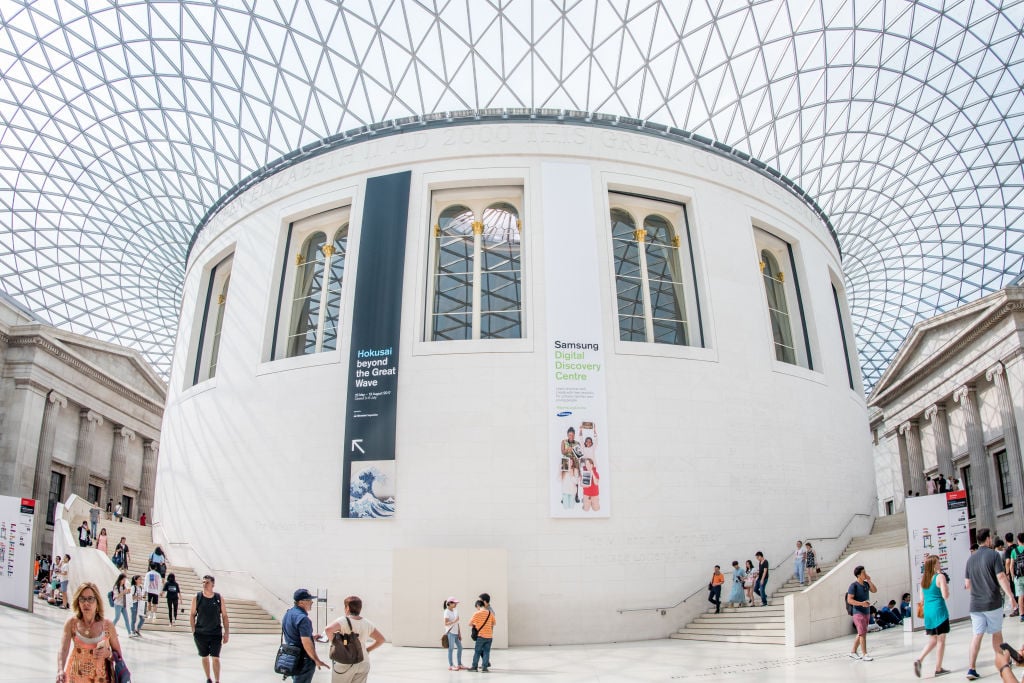
The UK government has announced an unprecedented £1.57 billion ($1.9 billion) bailout for its struggling culture sector.
The emergency rescue package comes as a relief to the country’s arts venues, which have been financially devastated by the lockdown, and now face prolonged uncertainty due to ongoing social distancing restrictions. While museums and galleries in England were given the green light to reopen from July 4, financial recovery is a long way off, and closed-down theaters and live performance venues continue to hemorrhage funds.
The British finance minister, Rishi Sunak, announced the emergency funds yesterday following urgent calls from leading cultural figures for the government to provide more support to the arts sector.
The package includes £880 million ($1.1 billion) in grants for museums, galleries, theaters, heritage sites, music venues, and independent cinemas in England, and £270 million ($338 million) in repayable loans will also be made available to the sector. The government further plans to inject £100 million ($125 million) into national cultural institutions in England, and offer £120 million ($150 million) to restart construction work at English cultural heritage sites, according to a government statement.
“Our world-renowned galleries, museums, heritage sites, music venues, and independent cinemas are not only critical to keeping our economy thriving, employing more than 700,000 people, they’re the lifeblood of British culture,” Sunak says in a statement. “That’s why we’re giving them the vital cash they need to safeguard their survival, helping to protect jobs, and ensuring that they can continue to provide the sights and sounds that Britain is famous for.”
The new funding also includes a £188 million lifeline for culture organizations in Northern Ireland (£33 million), Scotland (£97 million), and Wales (£59 million). Applications for funding will open in the coming weeks, and specialist bodies including Arts Council England, Historic England, National Lottery Heritage Fund, and the British Film Institute will help the government decide on awards.
The directors of Tate, the Science Museum Group, the Natural History Museum, the National Gallery, the British Museum, and the Victoria and Albert Museum welcomed the announcement of the rescue package in a joint statement, praising the government for recognizing its “duty of care” for the national collections.
“Our national museums are amongst the most entrepreneurial in the world and the economic impact of COVID-19 has proved particularly damaging to our finances,” the directors say. “Emergency assistance this year will enable us both to care for the collections and secure safe, free access to our galleries.”
The statement adds that the directors hope to consult on the country’s forthcoming Comprehensive Spending Review, which is held every three years in order to secure longer-term financial security for the culture industry.
“We greatly welcome this very significant investment by the government in the future of arts and culture in this country and look forward to working with them on next steps, says Nicholas Serota, the chair of Arts Council England, in a statement. “I know our amazing artists and creative organizations will repay the faith that the government has shown by demonstrating the range of their creativity, by serving their communities.”
Prospect, the UK-based union that represents tens of thousands of workers in the creative sectors, also welcomes the decision, but urges the government to take action swiftly. “There can’t be any more foot dragging,” the union’s general secretary Mike Clancy says in a statement. “The government must start to pump money into organizations in the sector this week if we don’t want to see more job losses and employers folding.”
The union representative adds that there should be an emphasis on the country’s “forgotten freelancers,” who have been excluded from the government’s existing support programs.